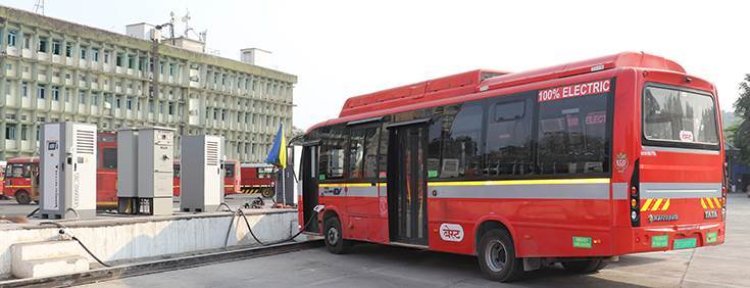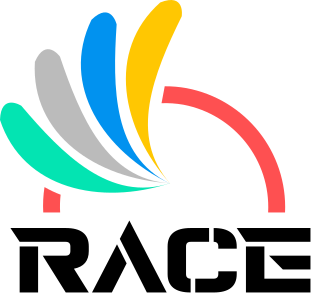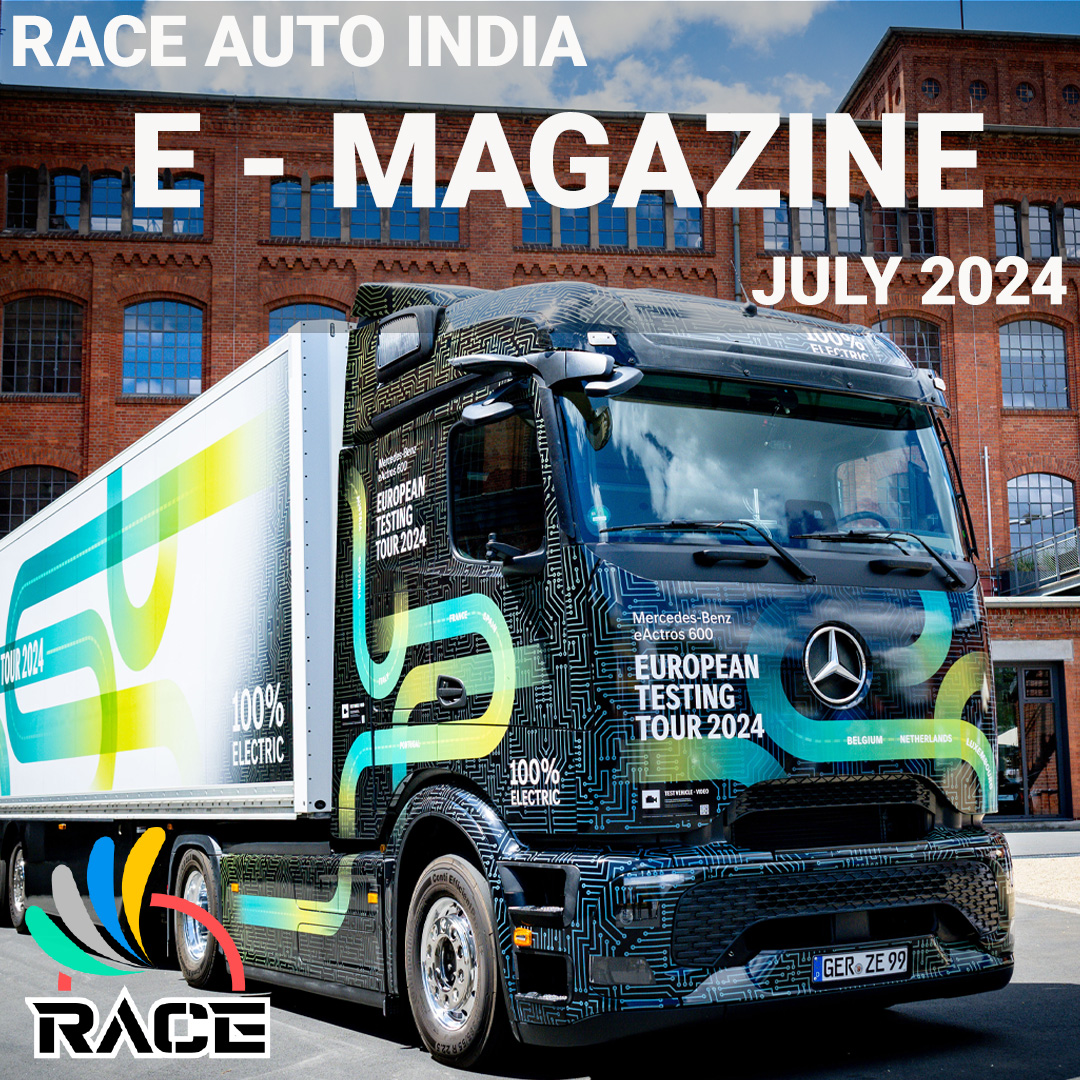E-Sawaari India E-bus coalition
The e-Sawaari India Electric Bus Coalition is an initiative towards ensuring steady and paced electrification of the bus transport system in India.

New Delhi – NITI Aayog1 has launched the e-Sawaari India Electric Bus Coalition, in partnership with Convergence Energy Service Limited (CESL)2 and World Resources Institute, India (WRI India)3, supported by Transformative Urban Mobility Initiative (TUMI).
The e-Sawaari India Electric Bus Coalition is an initiative towards ensuring steady and paced electrification of the bus transport system in India. It aims to share knowledge and learnings on e-bus adoption in India among various stakeholders, including central and state governments, city-level government agencies, transit service providers, original equipment manufacturers (OEMs), financing institutions and ancillary service providers.
It aggregates e-bus demand from the nine largest Indian cities - under the ambit of the Faster Adoption and Manufacturing of Electric Vehicles in India (FAME) scheme, Phase – II.
Electrification of public transport especially in the bus sector is key to India's decarbonization strategy and is crucial to achieve net zero emissions.
Mr. Amitabh Kant, CEO, NITI Aayog, said, “Electrification of public transport especially in the bus sector is key to India’s decarbonization strategy. The e-Sawaari India Electric Bus Coalition is a step toward ensuring steady and paced electrification of the bus transport system in India. Identifying innovative means to address the challenges of procurement, operations and financing e-bus deployment at scale is crucial to achieve net zero emissions.”
Ms. Mahua Acharya, CEO, Convergence Energy Services Limited (CESL), said, “It is imperative for multiple players to come into the electric bus eco system – be it financiers, banking partners, IT service providers or utility firms in addition to state transport undertaking and original equipment manufacturers. An enabling ecosystem to access funding and financing of electric buses is the need of the hour for scaled up adoption of electric buses.”
Dr. OP Agarwal, CEO, WRI India, said, “Need of the hour is to find high-impact solutions to address urban pollution, nudging a positive climate action, and enhancing urban living. To scale up e-bus adoption, we need to address its challenges - procurement, operational and financial. As a coalition, e-Sawaari will be able to facilitate discussions and identify innovative solutions to scale up e-bus adoption.
Mr. Rohan Shailesh Modi, Asia Co-Ordinator -TUMI E-Bus Mission said, “The e-Saawari India electric bus coalition aims to give a fresh impetus to India's e-bus sector by bringing cities, private sector and financiers work jointly to address the sectoral challenges. TUMI E-Bus we need to address the challenges with protocooperation” Mission is happy to support this unique initiative co-led by NITI AAYOG and CESL.”
1NITI Aayog serves as the apex public policy think tank and nodal agency in India. It was set up in 2015, by replacing the Planning Commission. It has been tasked with catalysing economic development and fostering cooperative federalism by involving State Governments of India.
2Convergence Energy Services Limited (CESL) is a newly established subsidiary of state-owned Energy Efficiency Services Limited, itself a joint venture of public sector companies under the Ministry of Power, Government of India. CESL is focused on delivering clean, affordable, and reliable energy. Convergence focuses on energy solutions that lie at the confluence of renewable energy, electric mobility and climate change. It builds upon the decentralized solar development experience in under-served rural communities in India, and over time, using battery energy storage, will deliver renewable energy solutions to power agricultural pumps, street lighting, domestic lighting and cooking appliances in villages. CESL will also work to enable battery powered electric mobility and its infrastructure and design business models to increase the uptake of electric vehicles in India. To enable commercialization of these solutions at scale, Convergence will employ business models that utilize a blend of concessional and commercial capital, carbon finance and grants as appropriate.
3World Resources Institute (WRI) is a global research non-profit organization established in 1982 with funding from the MacArthur Foundation under the leadership of James Gustave Speth. WRI's activities are focused on seven areas: food, forests, water, energy, cities, climate, and ocean. WRI works with governments, businesses, multilateral institutions, and civil society groups to develop practical solutions that improve people’s lives and protect nature. Analyze these issues through the lenses of our four Centers of Excellence: Business, Economics, Finance and Equity.
4TUMI’s objective is to accelerate the implementation of sustainable urban transport development and mitigation of climate change by mobilizing finance, building capacities and promoting innovative approaches. The Transformative Urban Mobility Initiative (TUMI) will support this transition by mobilizing significant investments in sustainable urban transport infrastructures and services, building the capacity of key decision makers and supporting innovative and transformative sustainable mobility approaches on the ground. Furthermore, TUMI will contribute to an improved dialogue on urban mobility with relevant stakeholders at global, national and local levels, and will increase the awareness of the private sector as well as civil society and help them mobilize to contribute more directly to the development of sustainable mobility solutions.


